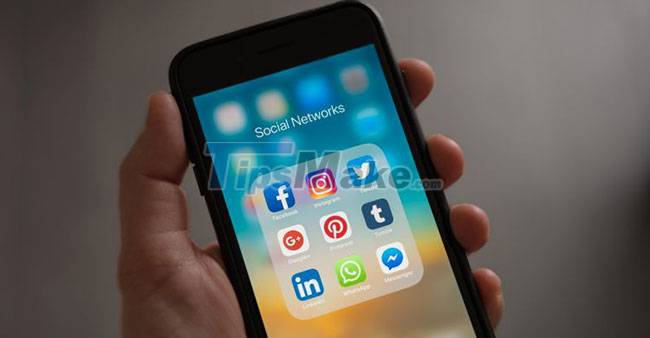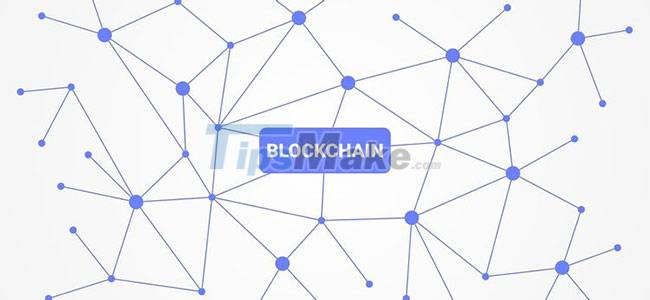Difference between Web 2.0 and Web 3.0
Over the past 20 years, the Internet has changed the world and the lives of billions of people. Most of us can't go a day without interacting with the Internet. Social media, online shopping, gaming, and the World Wide Web (WWW) have cemented a strong place in our lives, but it's also transformed.
Today, a new term is circulating, called Web 3.0 (or Web3). But what is Web 3.0 and is it much different from Web 2.0? Join TipsMake to find the answer through the following article!
What is Web 2.0?

Before discussing the new capabilities offered by Web 3.0, let's discuss the type of Internet we all use today: Web 2.0. Web 2.0, also known as Social Web, is a version of the Internet that focuses on user-generated content and social platforms, such as YouTube, Twitter, or Instagram. It is often considered the second stage of the Internet's development, succeeding Web 1.0.
The term "Web 2.0" found its place in the tech industry in the early 2000s, after the founder of technology publisher O'Reilly Media, Tim O'Reilly, discussed the concept of Web 2.0 at a conference. It then became a buzzword, carrying with it the wishes of the users at the time about the possibilities that Web 2.0 could provide to mankind. O'Reilly defined Web 2.0 as a "web as a platform", then it used terms like "democracy" and "social web" in its broad definition.
Since its emergence and subsequent hype, the term "Web 2.0" has been somewhat left out of the mainstream. But that doesn't mean the modern Internet doesn't represent what it accepts.
It is important to note that Web 2.0 is not an entirely new type of Internet, completely separate from its predecessor (Web 1.0). Rather, it describes a new, evolving use of the Internet. Take for example cloud computing. Web 2.0 emphasizes this technology, in which online resources, such as computing power and storage space, can be instantly accessed by users.
Think about what the web is mostly used for every day. Millions of businesses are using the Internet, along with all its streaming and gaming services. There is also an entire economy that exists within the confines of the Internet! For example, the cryptocurrency market relies on the Internet to function. But especially not to mention social networks, which have proven to be extremely popular and influential in our modern world.
Almost all of us use social media to some degree, whether it's watching a few YouTube videos a week or running an entire business through online marketplaces like Etsy and Depop. . The evolution from static to user-generated content over the last 10 to 15 years is essentially what Web 2.0 has to offer.
Currently, we all use a centralized version of the Internet with central servers that store and process information. While this Internet model is not necessarily bad, it is prone to server failures and network attacks. On top of that, a centralized Internet allows a small group of individuals to store all of the information in the network at once, which can be risky.
Because of these problems, there is now a new way that the Internet is being conceptualized, called Web 3.0. So, what exactly is Web 3.0, and is it the future of the Internet?
What is Web 3.0?

The term "Web 3.0" has spiked in popularity and is often used to describe a version of the decentralized Internet.
A decentralized network is one that has no central division. In other words, no one person or group of people has all the information and processing capabilities in the network at the same time. Instead, it is decentralized and spread across multiple entities. This means that no one can control or completely change the ecosystem of the network on their own.
You may have heard the term "decentralization" in relation to cryptocurrencies and blockchain technology. This is because cryptocurrencies operate on a blockchain, with each block on the chain containing multiple transaction records.
These blockchains provide transaction information to everyone in the network in the form of a distributed ledger. If a transaction in any given block is changed, deleted or added, that block will be rejected by the rest of the network, which makes it very secure and reliable.
It is this technology that can provide a network with a high degree of transparency and security. Such properties can certainly be useful for the Internet in general. Best of all, decentralized networks have no single point of failure, meaning the network cannot be destroyed through an attack on a single server or node.
This gives Web 3.0 an interesting possibility. Of course, the concept itself is not new. It was first imagined more than 15 years ago by Jeffrey Zeldman, a major contributor to the development of both Web 1.0 and 2.0.
But now the idea of a decentralized Internet is becoming a reality.
In addition to decentralization, Web 3.0 will also incorporate a lot of AI-powered features into the ecosystem. For example, content creation could shift from human-curated to AI-generated. In this case, an entire industry could be created, in which companies use intelligent machines to produce content for a human customer base.
In addition to all of this, Web 3.0 also gives users more control. Individuals can participate in many control web protocols, essentially becoming a part of it, not users or customers (since they are currently considered Web 2.0 users). Users can encode online files such as memes, online tickets, videos and artwork (similar to NFT), opening a whole new way for online creators to profit and create business by using its intellectual property.
Web 3.0 is the future of the Internet
The wide range of features offered by Web 3.0 could completely change the way we view and use the Internet, with users having more control, new industries and networks able to function. act without central authority and single weakness. While Web 3.0 is currently in its infancy, it may not be long before we see it become the norm worldwide.